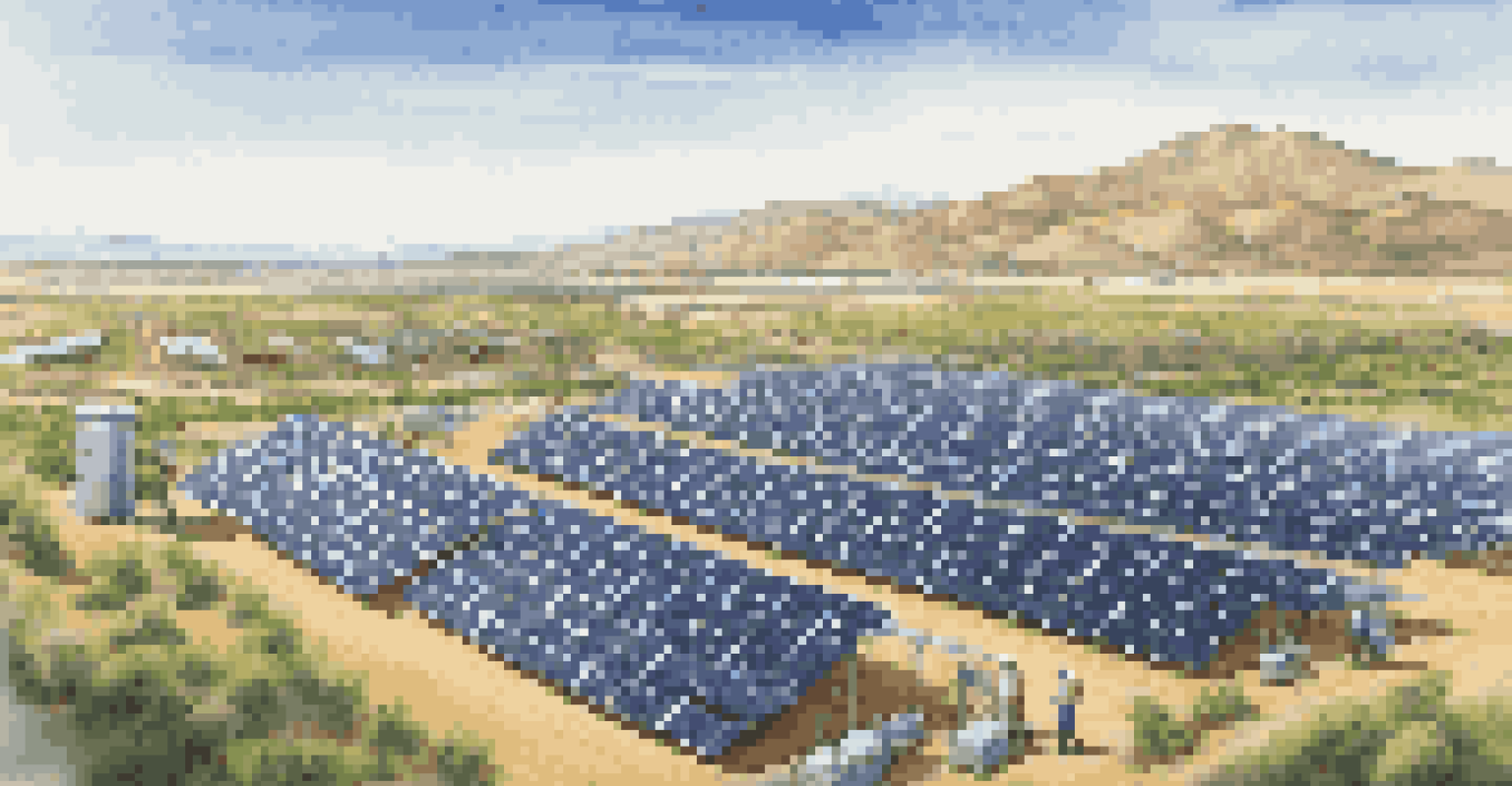Mexico's Economic Landscape: Emerging Opportunities

An Overview of Mexico's Economic Growth and Potential
Mexico has shown remarkable economic resilience, bouncing back from challenges like the pandemic and global market fluctuations. This growth is fueled by a young, dynamic workforce and strategic location, making Mexico a key player in the North American market. With ongoing reforms and investments, the country is positioning itself as a hub for trade and innovation.
The best way to predict the future is to create it.
In recent years, Mexico has become an attractive destination for foreign direct investment, particularly in sectors like manufacturing, technology, and energy. The government's efforts to streamline regulations and promote entrepreneurship have created a more favorable business environment. This shift not only enhances the economy but also opens doors for local businesses to thrive.
Moreover, the integration of technology into traditional industries is paving the way for new opportunities. From fintech startups to e-commerce platforms, entrepreneurs are leveraging technology to meet consumer demands and drive economic growth. As a result, Mexico is transforming into a vibrant landscape of innovation and opportunity.
Key Sectors Driving Mexico's Economic Expansion
Several sectors are leading the charge in Mexico's economic expansion, with manufacturing taking the forefront. The country is known for its robust automotive industry, attracting major global players to set up production facilities. This sector not only fuels job creation but also stimulates growth in related industries, such as logistics and services.

Additionally, the technology sector is rapidly gaining traction, with numerous startups emerging across the country. Cities like Guadalajara and Mexico City are becoming tech hubs, attracting talent and investment. This digital transformation is not just about innovation; it represents a shift in how businesses operate and engage with consumers.
Mexico's Economic Resilience
Despite challenges like the pandemic, Mexico's young workforce and strategic location are driving its economic growth.
Finally, the renewable energy sector is poised for significant growth in Mexico. With abundant natural resources and government incentives, companies are investing in solar and wind projects. This shift not only supports environmental sustainability but also enhances energy independence, making it a win-win for the economy.
The Impact of Trade Agreements on Mexico's Economy
Trade agreements play a crucial role in shaping Mexico's economic landscape, particularly the United States-Mexico-Canada Agreement (USMCA). This agreement has strengthened trade relations and provided a framework for fair competition in North America. As a result, Mexican exports have seen an uptick, benefiting industries like agriculture and manufacturing.
In the midst of every crisis, lies great opportunity.
Moreover, these trade agreements encourage foreign investment, as companies seek to capitalize on Mexico's access to larger markets. This influx of capital not only boosts the economy but also fosters innovation and job creation. It's a chain reaction that underscores the importance of global partnerships.
However, it's essential to navigate the complexities of these agreements carefully. While they offer immense potential, businesses must be aware of compliance requirements and market dynamics. Understanding these factors can help companies leverage trade agreements effectively for growth.
Challenges Facing Mexico's Economic Development
Despite its promising economic landscape, Mexico faces several challenges that could hinder its growth. Issues such as corruption, violence, and bureaucratic inefficiencies continue to pose significant obstacles for businesses. Addressing these challenges is crucial for creating a more stable and attractive environment for investment.
Additionally, income inequality remains a pressing concern, with many citizens lacking access to quality education and healthcare. This disparity not only affects the workforce's productivity but also limits the overall potential of the economy. Bridging this gap is essential for sustainable growth and social stability.
Key Growth Sectors Emerging
Manufacturing, technology, and renewable energy are leading sectors that are expanding Mexico's economic landscape.
Lastly, environmental concerns must be addressed as Mexico expands its industrial base. Striking a balance between economic development and environmental protection is vital. Sustainable practices can lead to long-term benefits, ensuring that growth does not come at the expense of future generations.
Growing Opportunities in the Digital Economy
The digital economy is rapidly evolving in Mexico, presenting vast opportunities for growth and innovation. With increasing internet penetration and smartphone usage, consumers are embracing online shopping and digital services. This shift is driving businesses to adapt and innovate, creating a thriving e-commerce landscape.
Moreover, the rise of fintech is revolutionizing the financial services sector. Companies are introducing solutions that cater to the unbanked population, facilitating access to credit and financial services. This democratization of finance not only empowers individuals but also stimulates economic activity.
As businesses continue to embrace digital transformation, the demand for skilled talent is on the rise. This presents an opportunity for educational institutions to align their programs with industry needs, fostering a skilled workforce ready to tackle the challenges of the digital age.
The Role of Education and Workforce Development
Education is a cornerstone of Mexico's economic future, with a focus on developing a skilled workforce. The government and private sector are collaborating to enhance educational programs, particularly in STEM fields. By investing in education, Mexico can equip its youth with the skills needed to thrive in a competitive global market.
Vocational training programs are also gaining traction, providing students with hands-on experience in various industries. These initiatives not only prepare individuals for the workforce but also address the skills gap that many employers face. A well-trained workforce is essential for driving innovation and growth.
Challenges to Overcome
Corruption, income inequality, and environmental concerns pose significant barriers to Mexico's economic development.
Furthermore, fostering a culture of lifelong learning can significantly impact economic development. As industries evolve, continuous education will ensure that the workforce remains adaptable and competitive. This commitment to learning can create a dynamic economy that responds to changing market demands.
Investing in Infrastructure for Future Growth
Infrastructure development is vital for supporting Mexico's economic growth and attracting investment. The government is prioritizing projects that enhance transportation, energy, and telecommunications networks. Improved infrastructure not only boosts efficiency but also connects businesses to markets and resources.
Additionally, investing in smart cities can create sustainable urban environments that improve the quality of life for residents. These initiatives often involve integrating technology to enhance public services, transportation, and energy management. Smart cities can drive economic growth while addressing urban challenges.

However, funding these infrastructure projects requires careful planning and collaboration between public and private sectors. Innovative financing models, such as public-private partnerships, can provide the necessary capital for large-scale projects. By fostering collaboration, Mexico can build the infrastructure needed for a prosperous future.